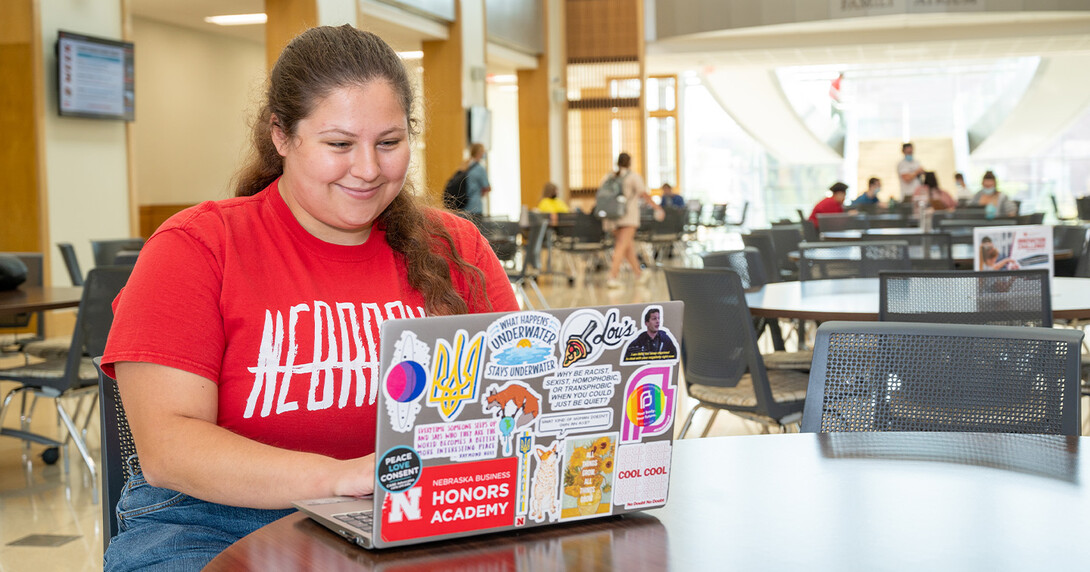
Students from Brazil and the University of Nebraska–Lincoln connected virtually to work on a capstone project for We Loop Brazil, an online secondhand clothing company. Part of a summer virtual global experience program led by Rob Simon, associate professor of practice in marketing at the College of Business, the course allowed students to share their insight and gain a greater global perspective.
“The students from the university had very different cultural backgrounds, including Huskers from Nepal, China, Oman and a student whose family emigrated from Ukraine. They were paired with Brazilian students to develop a business case for We Loop Brazil to move into the U.S. market. It was fascinating seeing them all come together,” said Simon.
Guest instructors also presented on topics such as social justice, education, healthcare and art in Brazil. Pedro Ruffier, CEO of We Loop Brazil, also attended select classes.
“The discussions between the students at Nebraska and the Brazilian students were a great learning experience for everyone as we came at these topics from different perspectives. Each student at Nebraska also worked with a Brazilian student and created Google Jamboards (digital whiteboards) reflecting and comparing different elements of their culture such as home life, dating, religion and sports,” Simon said.
Natalia Koval, a senior actuarial science and mathematics major from Palatine, Chicago, took the course to fulfill her international business requirements. A Spanish minor, she hoped to study abroad after her sophomore year to finish her minor in Bilbao, Spain, but the pandemic changed her plans.
“Some of my favorite moments in the course consisted of the breakout rooms in Zoom as I got to know the Brazilian students on a more personal level. The unique experience allowed us to relate and apply the international business concepts to our real-time conversations.” Koval said. “The diversity of cultural backgrounds was refreshing, especially because of the international business-oriented subject matter. It made analysis of international business concepts like the Hofstede theory of cultural dimensions much more impactful because we had students from the described companies speaking from their personal experience rather than reading it out of a textbook.”
Simon, who led in-person study abroad trips to Brazil, Chile and Italy in the past, enlisted the help of CampusB, a Brazilian study abroad and virtual experience company to make the class more interactive.
“They were very helpful in setting up the WhatsApp group and Google JamBoards, which made me feel connected to my peers on a similar level to that of in-person classes for the first time since the onset of the pandemic,” Koval said. “The Capoeira (dance) activity was especially engaging. We had an instructor on Zoom demonstrating the moves from Brazil, and all of us had our cameras on practicing it with him. It was fun to get up and move around.”
Koval gained insight and shared during discussions about different backgrounds in addition to being American.
“I personally have parents who are immigrants from Ukraine that I do not speak English with at home, and I did not learn English until I went to school. I would consider myself to also be culturally Ukrainian,” she said. “Learning about the experiences of people living abroad, people studying as international students at Nebraska, students from immigrant backgrounds at UNL and domestic students with well-established American roots was an insightful experience. We compared and contrasted our cultural experiences, often times being surprised by who had the most in common or most that was different.”
At the end of the three-week class, Pedro Ruffier, CEO of We Loop, helped select the student group who presented the best plan for the company.
“Working together with the UNL and Brazilian students was a great experience and really made the class a true experiential opportunity,” Simon said.







